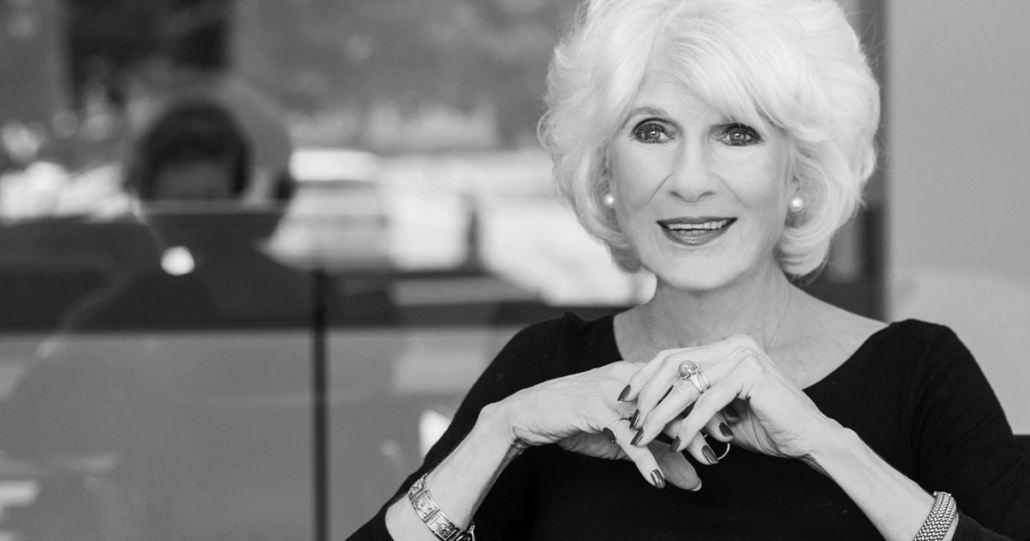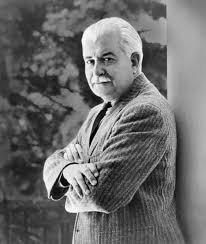REVIEW POTPOURRI: Johanna Fiedler on Arthur Fiedler
 by Peter Cates
by Peter Cates
Johanna Fiedler
In the Introduction to her 1994 memoir, Arthur Fiedler: Papa, the Pops, and Me, the late Johanna Fiedler (1944-2011) writes the following about being in New York City and watching the live CBS TV presentation of her father conducting the Boston Pops at the 1976 Bicentennial 4th of July concert at the Charles River Esplanade Shell:
“From the overhead shots taken by panning cameras on the roofs of neighboring apartment buildings, I could tell this was the largest crowd I had ever seen. People filled the Esplanade and the adjacent highway, crammed boats on the Charles River Basin, and stretched back as far as the television cameras were able to show. Later I found out that the crowd had been just as dense on the Cambridge side of the river, where the music must have been almost inaudible. The Guinness Book of Records was to list this as the largest mass of people ever to attend a classical music performance. “
Arthur Fiedler’s Boston Pops records sold in the millions. My earliest memories as a classical record collector in seventh grade are the 12-inch Red Seal 78s gifted to me by kind relatives and friends of Jacob Gade’s Jalousie with Manuel de Falla’s Ritual Fire Dance on the reverse side; of Ponchielli’s Dance of the Hours (itself the melody for Allan Sherman’s infamous early 1960s best selling record Hello Fadda, Hello Madda/Camp Granada); a spirited late 1940s 78 set of the Offenbach/Rosenthal Gaite Parisienne Ballet with its own Can Can; and hearing on the radio the Pops own semi-classical arrangement, with sweetly graceful strings, of the Beatles’ I Want to Hold Your Hand, for me the first enjoyable rendition of one of their songs, as during junior high I detested rock music, especially the Beatles, the Beach Boys and Elvis Presley.
With 13th birthday money, I bought a 1964 Boston Pops album (RCA Victor LM-2745) simply titled Music America Loves Best, and containing spirited performances of Rossini’s William Tell Overture, Handel’s Largo, Grieg’s The Last Spring, Wagner’s Prelude to Act 3 of Lohengrin, Johann Strauss’s Acceleration Waltz, and the Brahms’ 6th Hungarian Dance, at Al Corey’s Music Center, in Waterville.
It had a full spread cover photo of Fiedler sitting on a park bench with his baton against a green background. I played that record to death.
Fiedler seemed to be a slightly gruff but likable character and conveyed this persona in his public appearances over almost 50 years. However, like so many artists, he was a very complicated man.
In her book, Johanna writes of her father as loving, moody, fun-filled, harsh, generous, miserly, attentive, and indifferent; and of his own harrowing insecurities as his fame and wealth increased.
Examples:
She tells of her father, when she was a little girl, giving her one on one time cuddling with her while they both watched boxing matches on his bedroom TV. But when she was a teenager and dressed nicely for her parents, he’d put her down with comments such as “She looks like a French prostitute or…a piece of cheese.”
The parents constantly fought among themselves and with Johanna, while, as an adult, she was estranged from both of them for months.
Her father’s insecurities stemmed partly from the resentments of the classical music world at the success of the Pops concerts and records. And, as he grew older, he had paralyzing fears about losing his mental and physical health.
Again, Johanna writes:
“‘Poor Pierre Monteux [the conductor who founded a summer school in Hancock, Maine, for teaching conducting],’ Papa said in 1970. ‘Near the end, he could hardly get on the stand, and his legs were frozen during a concert.’ Only a year or two later, my father began having trouble with his own legs, the fate he had been predicting for himself for years. His walking and balance got so bad that he could barely lift his feet off the floor, and we had to install a stair elevator at Hyslop Road [the address of the Fiedler family home in Brookline, Massachusetts.].”
As a personal account of growing up under a famous parent, this book is highly recommended.
I recently heard a 1970s cassette anthology, American Salute, in which Fiedler and the Boston Pops do staples ranging from Aaron Copland’s Hoedown from Rodeo, William Schuman’s arrangement of the Revolutionary War hymn Chester and the title selection American Salute, by Morton Gould, to pop songs by Jimmy Webb – By the Time I Get to Phoenix and Galveston; the more traditional Down in the Valley and Deep in the Heart of Texas; TV themes from Bonanza, Maverick, Have Gun Will Travel, and Gunsmoke; guitarist Chet Atkins playing Tennessee Waltz; Saint Louis Blues, etc. These were all culled from previous Boston Pops LPs and done with the consistently spirited musicianship Fiedler was justly renowned for.
Finally one Arthur Fiedler album I absolutely cherish among the many here at the house is a late 1940s RCA Victor collection of four Overtures by 19th century French composer Daniel-Francoise Auber (1782-1871).
And YouTube abounds with Fiedler recordings, the PBS Evening at Pops episodes and more.
Responsible journalism is hard work!
It is also expensive!
If you enjoy reading The Town Line and the good news we bring you each week, would you consider a donation to help us continue the work we’re doing?
The Town Line is a 501(c)(3) nonprofit private foundation, and all donations are tax deductible under the Internal Revenue Service code.
To help, please visit our online donation page or mail a check payable to The Town Line, PO Box 89, South China, ME 04358. Your contribution is appreciated!




Leave a Reply
Want to join the discussion?Feel free to contribute!